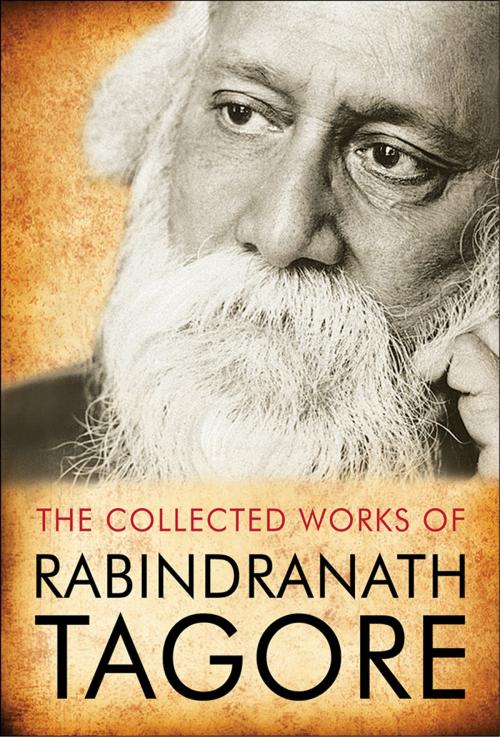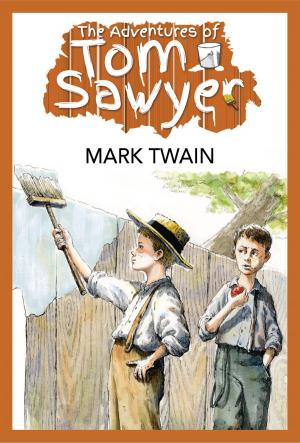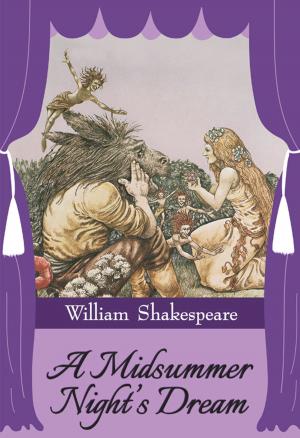The Complete Works of Rabindranath Tagore (Illustrated Edition)
Fiction & Literature, Poetry, Inspirational & Religious, Short Stories, Classics| Author: | Rabindranath Tagore, GP Editors | ISBN: | 9788180320798 |
| Publisher: | General Press | Publication: | March 14, 2017 |
| Imprint: | Global Digital Press | Language: | English |
| Author: | Rabindranath Tagore, GP Editors |
| ISBN: | 9788180320798 |
| Publisher: | General Press |
| Publication: | March 14, 2017 |
| Imprint: | Global Digital Press |
| Language: | English |
The Works of Rabindranath Tagore consist of poems, novels, short stories, dramas, and essays that Bengali poet and Brahmo philosopher Rabindranath Tagore created over his lifetime. This ebook presents a collection of all major works of Tagore. A dynamic table of contents allows you to jump directly to the work selected.
Tagore's literary reputation is disproportionately influenced very much by regard for his poetry; however, he also wrote novels, essays, short stories, travelogues, dramas, and thousands of songs. The poems of Rabindranath Tagore are among the most haunting and tender in Indian and in world literature, expressing a profound and passionate human yearning. His ceaselessly inventive works deal with such subjects as the interplay between God and the world, the eternal and transient, and with the paradox of an endlessly changing universe that is in tune with unchanging harmonies. Poems such as 'Earth' and 'In the Eyes of a Peacock' present a picture of natural processes unaffected by human concerns, while others, as in 'Recovery 14', convey the poet's bewilderment about his place in the world.
RABINDRANATH TAGORE:
Rabindranath Tagore (1861-1941) was the youngest son of Debendranath Tagore, a leader of the Brahmo Samaj. He was educated at home and although at seventeen he was sent to England for formal schooling, he did not finish his studies there. In his mature years, in addition to his many-sided literary activities, he managed the family estates, a project which brought him into close touch with common humanity and increased his interest in social reforms. He also started an experimental school at Shantiniketan where he tried his Upanishadic ideals of education. From time to time he participated in the Indian nationalist movement, though in his own non-sentimental and visionary way; and Gandhi, the political father of modern India, was his devoted friend. Tagore was knighted by the ruling British Government in 1915, but within a few years he resigned the honour as a protest against British policies in India.
Tagore had early success as a writer in his native Bengal. With his translations of some of his poems he became rapidly known in the West. In fact, his fame attained a luminous height, taking him across continents on lecture tours and tours of friendship. For the world he became the voice of India's spiritual heritage; and for India, especially for Bengal, he became a great living institution.
Although, Tagore wrote successfully in all literary genres, he was first of all a poet. Among his fifty and odd volumes of poetry are Manasi (1890) {The Ideal One}, Sonar Tari (1894) {The Golden Boat}, Gitanjali (1910) {Song Offerings}, Gitimalya (1914) {Wreath of Songs}, and Balaka (1916) {The Flight of Cranes}. The English renderings of his poetry, which include The Gardener (1913), Fruit-Gathering (1916), and The Fugitive (1921), do not generally correspond to particular volumes in the original Bengali; and in spite of its title, Gitanjali: Song Offerings (1912), the most acclaimed of them, contains poems from other works besides its namesake. Tagore’s major plays are Raja (1910) {The King of the Dark Chamber}, Dakghar (1912) {The Post Office}, Achalayatan (1912) {The Immovable}, Muktadhara (1922) {The Waterfall}, and Raktakaravi (1926) {Red Oleanders}.
The Works of Rabindranath Tagore consist of poems, novels, short stories, dramas, and essays that Bengali poet and Brahmo philosopher Rabindranath Tagore created over his lifetime. This ebook presents a collection of all major works of Tagore. A dynamic table of contents allows you to jump directly to the work selected.
Tagore's literary reputation is disproportionately influenced very much by regard for his poetry; however, he also wrote novels, essays, short stories, travelogues, dramas, and thousands of songs. The poems of Rabindranath Tagore are among the most haunting and tender in Indian and in world literature, expressing a profound and passionate human yearning. His ceaselessly inventive works deal with such subjects as the interplay between God and the world, the eternal and transient, and with the paradox of an endlessly changing universe that is in tune with unchanging harmonies. Poems such as 'Earth' and 'In the Eyes of a Peacock' present a picture of natural processes unaffected by human concerns, while others, as in 'Recovery 14', convey the poet's bewilderment about his place in the world.
RABINDRANATH TAGORE:
Rabindranath Tagore (1861-1941) was the youngest son of Debendranath Tagore, a leader of the Brahmo Samaj. He was educated at home and although at seventeen he was sent to England for formal schooling, he did not finish his studies there. In his mature years, in addition to his many-sided literary activities, he managed the family estates, a project which brought him into close touch with common humanity and increased his interest in social reforms. He also started an experimental school at Shantiniketan where he tried his Upanishadic ideals of education. From time to time he participated in the Indian nationalist movement, though in his own non-sentimental and visionary way; and Gandhi, the political father of modern India, was his devoted friend. Tagore was knighted by the ruling British Government in 1915, but within a few years he resigned the honour as a protest against British policies in India.
Tagore had early success as a writer in his native Bengal. With his translations of some of his poems he became rapidly known in the West. In fact, his fame attained a luminous height, taking him across continents on lecture tours and tours of friendship. For the world he became the voice of India's spiritual heritage; and for India, especially for Bengal, he became a great living institution.
Although, Tagore wrote successfully in all literary genres, he was first of all a poet. Among his fifty and odd volumes of poetry are Manasi (1890) {The Ideal One}, Sonar Tari (1894) {The Golden Boat}, Gitanjali (1910) {Song Offerings}, Gitimalya (1914) {Wreath of Songs}, and Balaka (1916) {The Flight of Cranes}. The English renderings of his poetry, which include The Gardener (1913), Fruit-Gathering (1916), and The Fugitive (1921), do not generally correspond to particular volumes in the original Bengali; and in spite of its title, Gitanjali: Song Offerings (1912), the most acclaimed of them, contains poems from other works besides its namesake. Tagore’s major plays are Raja (1910) {The King of the Dark Chamber}, Dakghar (1912) {The Post Office}, Achalayatan (1912) {The Immovable}, Muktadhara (1922) {The Waterfall}, and Raktakaravi (1926) {Red Oleanders}.















